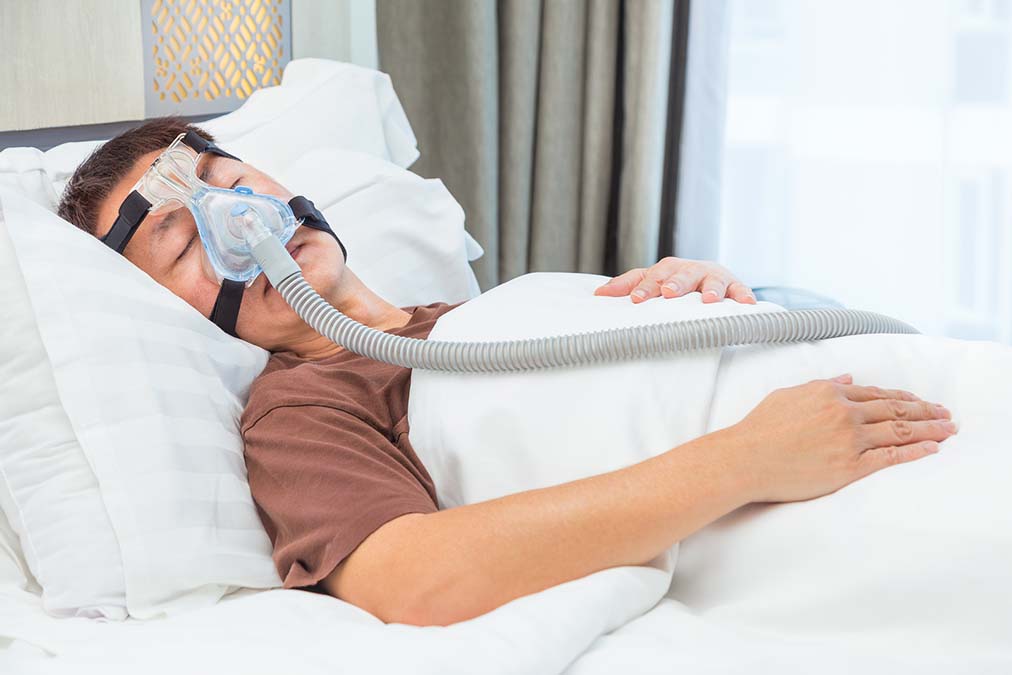 Sleep apnea is a destructive disorder that causes daytime sleepiness, dementia, cardiovascular disease, diabetes, and even early death.
Sleep apnea is a destructive disorder that causes daytime sleepiness, dementia, cardiovascular disease, diabetes, and even early death.
Given its severity, it is important to know how much it’s preventable through behavior change and how much of it is already in our genes.
A new study in the journal Respiratory Research sheds some light on this with a detailed analysis.
Good news is, you can still easily cure it.
Lots of things point to genetically inherited reasons for sleep apnea. It’s more common in people whose upper airways are small, have weak muscles, accumulate fat, and so on. Like other physical characteristics, these might be inherited from our parents.
The authors of the new study recruited 71 twin pairs (142 people) who were on the Hungarian Twin registry. 48 of the pairs were identical (monozygotic) and 23 fraternal (dizygotic).
There is a good reason why researchers use twins for these types of studies.
Fraternal twins and other siblings tend to share only 50 percent of their genes. This makes it difficult to work out which of their characteristics are due to their shared family environment and which are due to their genes.
But identical twins share 100 percent of their genes, so any differences between them are more likely to be because of environmental influences.
This means that, if identical twins are similar in some way, it’s going to be because of their genes, rather than their environment.
The twins (average age 51) were asked to sleep in the laboratory to test for sleep apnea.
The scientists used this information to score them on the apnea hypopnea index, which measures periods of shallow breathing, breathing pauses, and blood oxygen levels.
They were also given a questionnaire to test their level of daytime sleepiness.
41 percent of their subjects had sleep apnea, and they found that it was highly genetically influenced.
Between 69 and 83 percent of their scores on the apnea hypopnea index, the respiratory disturbance index, and the oxygen desaturation index were genetically determined.
Their unique, unshared environments contributed the other 17 to 31 percent.
When they experienced more than five apnea or hypopnea events per hour, this was 73 percent determined by their genes.
Daytime sleepiness was a lot less common than most people think and those with and without sleep apnea did not differ much.
The scientists concluded that daytime sleepiness was mostly caused by environmental factors, with genes contributing only 34 percent to it.
The authors speculated that the environmental factors causing daytime sleepiness were probably things like poor sleep hygiene, irregular work shifts, diets, and medications.
This means that you can blame your parents for having sleep apnea, but you’ve only got yourself to blame if you do nothing about it.

 Overcoming IBD
Overcoming IBD Multiple Sclerosis
Multiple Sclerosis Banishing Bronchitis
Banishing Bronchitis Gum Disease Gone
Gum Disease Gone Overcoming Onychomycosis
Overcoming Onychomycosis Neuropathy No More
Neuropathy No More The Prostate Protocol
The Prostate Protocol Brain Booster
Brain Booster
 Ironbound
Ironbound
 Solution for Shingles
Solution for Shingles
 The Bone Density Solution
The Bone Density Solution
 The Ultimate Healing Protocol
The Ultimate Healing Protocol
 The Parkinson's Protocol
The Parkinson's Protocol
 The Chronic Kidney Disease Solution
The Chronic Kidney Disease Solution
 Overthrowing Anxiety
Overthrowing Anxiety The Fatty Liver Solution
The Fatty Liver Solution The Hypothyroidism Solution
The Hypothyroidism Solution
 The End of Gout
The End of Gout The Blood Pressure Program
The Blood Pressure Program
 The Oxigized Cholesterol Strategy
The Oxigized Cholesterol Strategy
 Stop Snoring And Sleep Apnea Program
Stop Snoring And Sleep Apnea Program
 The Arthritis Strategy
The Arthritis Strategy The Vertigo & Dizziness Program
The Vertigo & Dizziness Program The 3-Step Diabetes Strategy
The 3-Step Diabetes Strategy Hemorrhoids Healing Protocol
Hemorrhoids Healing Protocol The Erectile Dysfunction Master
The Erectile Dysfunction Master Weight Loss Breeze
Weight Loss Breeze The IBS Program
The IBS Program The Insomnia Program
The Insomnia Program The Migraine and Headache Program
The Migraine and Headache Program The Neck Pain Solution
The Neck Pain Solution The Menopause Solution
The Menopause Solution The Ejaculation Master
The Ejaculation Master The TMJ Solution
The TMJ Solution The Acid Reflux Solution
The Acid Reflux Solution The Fibromyalgia Solution
The Fibromyalgia Solution The Psoriasis Strategy
The Psoriasis Strategy